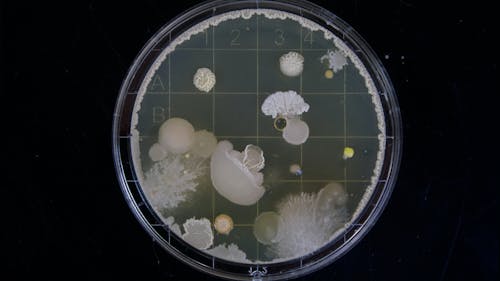Two Rutgers professors featured in new documentary about human microbiome

A new documentary called "The Invisible Extinction" focuses on two Rutgers professors and their research on the loss of body bacteria and its connection to certain diseases, according to a press release.
The documentary, which was screened on Tuesday in Robert Wood Johnson Medical School, features Martin Blaser and Maria Gloria Dominguez-Bello, a Henry Rutgers Professor and Henry Rutgers Chair of the Human Microbiome, respectively.
Blaser, who is also the director of the University’s Center for Advanced Biotechnology and Medicine, said the creation of the documentary was prompted by his research into how antibiotics affected mice’s body fat.
The various bacteria and viruses present in the bodies of all organisms, including mice, are known as microbiomes.
Blaser said that in one of his studies, he tested antibiotics that affected the microbiome of mice and increased their body fat. Even after the mice stopped receiving the antibiotics, they still gained fat, showing the treatments' permanent effect.
With respect to this research, Blaser said he had a meaningful realization when he analyzed the effects of antibiotics given to livestock by farmers and the effects of antibiotics given to children by doctors.
He said he concluded that giving children antibiotics for diseases like throat and ear infections correlated to increased body fat and other illnesses like asthma or allergies.
Blaser said he then set out to research which other types of ancient bacteria were decreasing from parts of the human body and what diseases arose due to their extinction.
During his research on a damaging stomach bacteria that causes cancer and ulcers called helicobacter pylori, Blaser met Dominguez-Bello, he said. Eventually, the two professors embarked on research trips across various Latin American countries.
"My research has taken me to many field trips, mostly in South America, including my country of birth, Venezuela (as well as) Brazil, Peru, Bolivia," Dominguez-Bello said. "Countries with traditional peoples that harbor the highest human microbiome diversity that we seem to be losing with urbanization."
As sequencing methods have developed over the years, researchers have been able to analyze microbiome more efficiently, she said.
"With the vast knowledge on environmental microbial ecology scientists started to apply it to the human microbiome, to understand the origin, variations and functions of microbes that have evolved with humans," Dominguez-Bello said.
Additionally, she said she believes that the most challenging part of studying diseases related to the microbiome is that it can take multiple years to see the tangible effects of the diseases. For example, she is currently studying the effects of elective C-sections on babies' microbiomes, a process that will take five years to see results.
Dominguez-Bello, who is also the director of the New Jersey Institute for Food, Nutrition and Health, said "The Invisible Extinction" will discuss such effects of medicine on humans during their early developmental stages, like infancy.
She also said she hopes audiences who watch the documentary will learn about the byproducts of contemporary societies' treatment of infectious diseases. Blaser also has some takeaways for the audience.
"The filmmakers did a very good job presenting many important issues about our internal milieu ... being damaged by antibiotics (and) C-sections inadvertently ... and how important it will be for your generation and future generations to solve this problem," he said.
Both Dominguez-Bello and Blaser plan to continue their research following the documentary’s premiere, with the latter saying that he has appreciated working with Rutgers students for his work.
"We have not stopped. We are active researchers,” Dominguez-Bello said. "My focus continues being restoration methods in early life to protect from later diseases and methods to preserve the microbial biodiversity that is being lost with urbanization."



